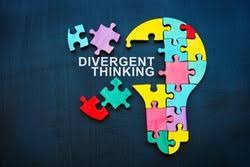Access to the Science of Reading for Adult learners
In the Fall 2021, I taught a 16-week Word Analysis course at Madison College. In this course, adult learners were provided access to literacy content and activities grounded in evidence-based practices also known as the Science of Reading.
The emphasis of the course was reading instruction utilizing a simultaneous, structured, multi-sensory approach to teach word meaning. The primary objectives of the course were to improve word recognition and decoding, vocabulary, and morphological awareness. Such a course is urgently needed as “130 million adults in America lack proficiency in reading. Additionally, 54% of adults between the ages of 16 and 74 years old lack proficiency in literacy, essentially reading below the equivalent of a sixth-grade level” (Barbara Bush Foundation for Family, 2022). During the summer of 2021, I dove deeply into What Teachers Need to Know about Spelling (Westwood, 2008) and Speech to Print: Language Essentials for Teachers (Moats, 2020) to create three-week modules delivered throughout the semester and focusing on the first five chapters of Moats’ book. Basically, my efforts were centered around taking this content, which is usually framed for teacher preparation programs, and making it accessible for adolescents and adult learners through structured activities. For example, when it came to word knowledge, the students learned how we assigned five different phonemic units to spell the sound /ar/ as in:
• /ar/ as in Art
• /ear/ as in heart
• /or/ as in tomorrow
• /er/ as in sergeant
• /uar/ as in guard
These types of activities allowed students to become: (1) familiar with the sound and spelling of common words following syllable patterns and vowel sound rules, (2) independent in mastering the entire sound structure of the American English language, and (3) start appreciating the structure of English orthography. Given that these are adult learners, instructional practices gave them opportunities to analyze the structure of words. To create this course, I drew upon the work of researchers and practitioners who are equipped with extensive knowledge of the cognitive processes of reading and various theoretical models. I became more adept at translating early reading instruction models into approaches that addressed the learning needs of adult learners. These adult students have achieved some measure of success in reading, but various gaps persisted in word knowledge and decoding skills. I was able to draw on the components of early literacy instruction, adapted for adult learners, to fill in any missing components related to decoding, encoding, and orthography.
The fundamental knowledge that frames the Science of Reading is usually reserved for certain professional and educational groups who receive high level training, often as professional development, or in-service training. From my experience in the Community College adult classroom, having access to this type of curriculum and training can be transformational and lead to self-liberation. As an adult educator, when approaching my students from this more advanced perspective, I do not limit them to learning only through lower-level, remedial content, but can help them crack the code by translating the body of knowledge provided to young children into an adult-worthy framework. Creating an appropriate curriculum required me to be deliberate in designing a course that provided students with advanced concepts about language by exposing them to explicit, sequential, and systematic instruction.
The chart below provides direction for future courses; however, it should be noted that the largest gains were in Word Recognition, Decoding, and Vocabulary, which were the focus. Morphology was covered; however, it was towards the end of the semester. The chart indicates gains in most areas, though the greatest gains were in word recognition, decoding, and vocabulary which were the areas given the greatest amount of time and attention during the course. The last three subtests, Sentence Processing, Reading Efficiency, and Reading Comprehension, are not cover in the Word Analysis course because students take a College Reading strategy course covering these topics.
A more detailed report will be forthcoming. However, after this course, students knew the worth of literacy education through personal experience and reported feeling as if they had finally received a valuable reading education. I am very proud of what these students accomplished. The results are promising, and I am excited about the future of this course at Madison College. This course and teaching experience rejuvenated me. Overall, the course allowed me to feel both accomplished and inspired, and the students can take their new and improved reading skills into the next phase of their lives.
Sincerely,
Shawn Anthony Robinson PhD





Comments
Post a Comment